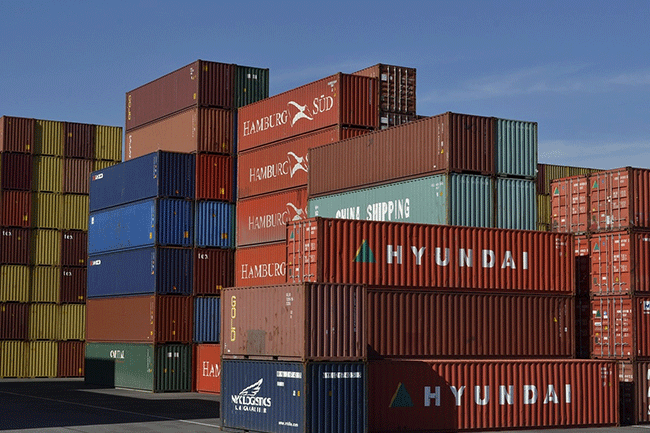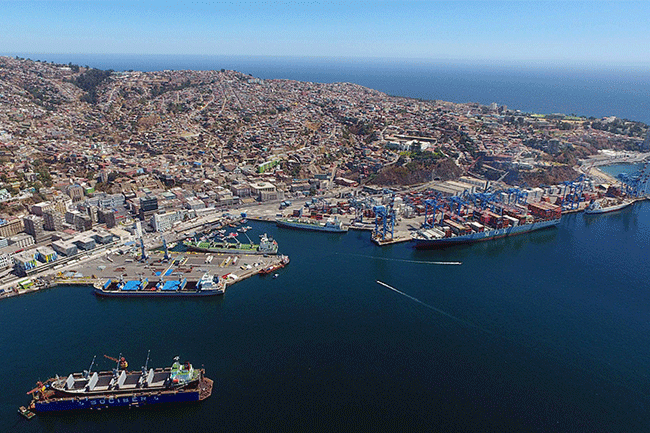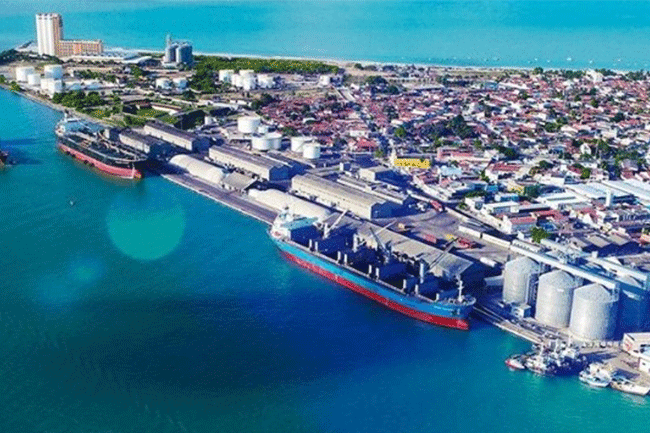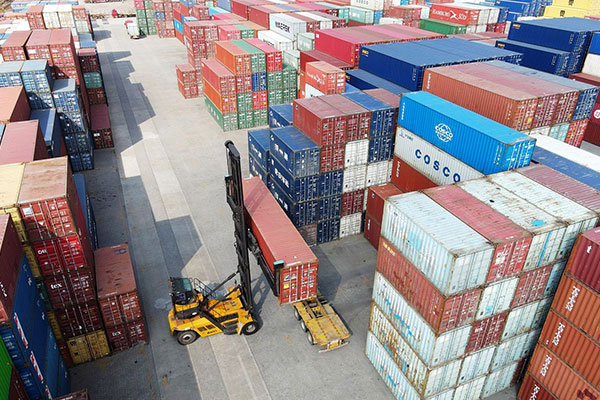- Shanghai Zhongshen International Trading Co., Ltd. – Your reliable partner with 20 years of import/export agency service expertise.

New Trends in Sino-Japanese Food Trade: Market Opportunities and Challenges for Japanese Cake Imports
In recent years, with the deepening of the RCEP agreement and the upgrading of domestic consumption, the demand for imported baked goods from Japan has surged. According to data from the General Administration of Customs, in January-October 2023, the value of pastry products imported from Japan to China increased by 27% year-on-year, with high-end fresh cream cakes and wagashi cakes accounting for more than 60% of the total. However, opportunities come with challenges: Japan's Food Sanitation Law (JFSL) imposes strict regulations on raw material traceability and additive use, while Chinese customs implement a full-chain management of imported foods including "pre-import review, inspection upon import, and post-import supervision". Enterprises need to address issues such as document compliance, cold-chain logistics, and other regulatory requirements.Convert foreign exchange into RMBThere are multiple challenges, such as risk control. Professionalforeign tradeThe involvement of agents is becoming a key factor for enterprises to break through barriers and improve efficiency.
The core services of the Japanese cake import agency: professional barriers in documentation and logistics
First, document processing: A "travel permit" that complies with all regulatory requirements throughout the entire process.
Imported cakes are pre-packaged foods and require submitting more than 10 core documents. The value of professional agents lies in their precise control of these documents.
- Official certificates: The "Health Certificate" issued by the Japanese Ministry of Health, Labour and Welfare (which must specify "in compliance with Chinese food additive standards")Origin Certificate(FORM E, enjoying RCEP tariff preferences), the registration number of food production enterprises exporting to China (as required by the General Administration of Customs' Decree No. 145);
- Business documents: Business invoice (which must reflect the CIF price, including the details of freight and insurance premiums), packing list (indicating the specifications of each box of cakes, production date, and shelf life), and bill of lading.Maritime transportYou need to select a cold chain shipping company.Air freightIt is necessary to specify the terms of "temperature-controlled transportation".
- Special Requirements: Chinese label samples (which must be registered with the customs in advance, and include the ingredient list, importer information, and storage conditions). The agency team can provide pre-audit services for documents to avoid customs clearance delays caused by issues such as "lack of additive descriptions in the health certificate" and "delayed label registration". (Such problems account for 35% of the cases of imported cakes being returned.)
II. Logistics Services: Control of the "Last Mile" in Cold Chain Transportation
Cakes, as perishable food, require temperature control throughout the logistics process (0-4°C). The professional competence of the agent is reflected in the following aspects:
- Selection of transportation methods: For small batches with short shelf lives (such as fresh cakes with a 7-day shelf life), air freight is recommended (Tokyo-Shanghai takes 4 hours directly, and with efficient customs clearance, door-to-door delivery can be achieved within 48 hours). For large batches of room-temperature cakes (such as wagashi with a 30-day shelf life), ocean freight refrigerated containers can be used (but the temperature control records of the shipping company's refrigerated containers need to be verified).
- Customs Clearance Coordination: 1. Declare "special items" to the customs in advance and make an appointment for the green channel inspection; 2. Cooperate with the China Inspection and Quarantine (CIQ) to complete the on-site inspection (such as spot-checking of temperature and humidity records and sensory inspection), ensuring "inspection and release at the same time".
- Last-mile delivery: In cooperation with the top three cold chain logistics companies in China, we provide end-to-end temperature-controlled delivery services covering "bonded warehouse temporary storage - distribution center - terminal stores", and support real-time GPS temperature and humidity monitoring (with an error of ±0.5°C).
Extension of business to Russia: VTB's exchange settlement advantages help expand into diverse markets
Some enterprises, while importing Japanese cakes, may also be involved in exports to Russia (such as providing supporting baking ingredients). For trade with Russia, agents can offer foreign exchange settlement solutions from VTB Bank (the Russian Foreign Trade Bank), which offers significant advantages:
- Settlement efficiency: VTB has direct clearing channels with major Chinese commercial banks (such as ICBC and BOC), and the arrival time of T/T payments is shortened by 1-2 working days compared with ordinary Russian banks.
- Exchange rate risk hedging: Support direct RMB-Ruble listing transactions to avoid the exchange rate fluctuations of US dollar settlement (in 2023, the fluctuation range of the Ruble against the US dollar exceeded 15%, and direct local currency settlement can reduce exchange rate costs by 3-5%);
- Compliance guarantee: VTB is regulated by the Central Bank of Russia and can provide a complete three-document match of "trade background proof - capital flow - goods flow", thus avoiding the risk of secondary sanctions imposed by OFAC (the Office of Foreign Assets Control of the US Department of the Treasury).
Detailed Explanation of the Entire Import Process: The 9 Key Steps from Order Placement to Delivery
1. Client Consultation: Precise Needs Assessment
The agent needs to clarify the client's requirements: the type of imported cakes (fresh cakes/room-temperature cakes), the annual demand (which determines the transportation method), the target sales regions (which affect the choice of cold-chain distribution network), and inform them of the service boundary of "not providing certification services" (for example, foreign production enterprises need to apply for registration with the customs independently).
2. Negotiation & Contracting: Clause Review and Risk Allocation
The focus of the review is on the "quality standards" in the contract (e.g., cream fat content ≥35%), the "delivery period" (with a 15-day customs clearance buffer period), and the "dispute resolution" (it is recommended to stipulate that the China International Economic and Trade Arbitration Commission shall handle the disputes). It should be clarified that "any customs clearance delays caused by the client's failure to complete the certification shall be borne by the client".
3. Orders and Payments: Select Payment Method
We recommend the T/T payment method with a 30% down payment and 70% payment upon receipt of the bill of lading copy (with manageable risks). If the client accepts this, we can pair it with a short-term insurance policy from China Export & Credit Insurance Corporation (to cover the risk of buyer's non-payment). For related business with Russia, we can simultaneously use VTB Bank's services.?L/C?(L/C), enhancing Russian party’s trust.
4. Production Supervision: Pre-audit of Compliance
Although the agent does not participate in production, they can assist clients in reviewing the "Raw Material Ingredients List" provided by the Japanese side (to verify whether it contains food additives prohibited by China, such as azodicarbonamide) and the "Production Process Record" (to confirm that the temperature of the cold chain production environment is ≤10°C), to avoid "the goods being returned due to non-compliance with ingredient requirements after arriving at the port" (such cases accounted for 18% of all cases in 2022).
5. Logistics Management: Full-chain temperature control tracking
The agent is responsible for booking shipping space (for sea freight, Maersk Reefer is selected; for air freight, All Nippon Airways' cold chain container is chosen), preparing the "Transportation Temperature Record Sheet" (which must show the temperature at the time of loading and the temperature control nodes during transit), and pushing the real-time data of "transportation track + temperature and humidity curve" to customers through the logistics system.
6. Customs compliance: accurate declaration of tax numbers and tariffs
The HS code for the cake is 1905.9000 (Other Pastries), with an import tariff of 15% under Most-Favored-Nation treatment (which can be reduced to 10% for Japanese origin products under the Regional Comprehensive Economic Partnership, RCEP) and a value-added tax of 13%. Agents must accurately declare the "duty-paid price" (including shipping and insurance costs) to avoid the risk of customs valuation based on under-declaration (in 2023, cases of customs valuation adjustments for baked goods accounted for 22% of all cases).
7. Delivery and Distribution: Standardized Terminal Delivery
After customs clearance, the agent coordinates the cold chain vehicles to distribute the goods to the designated warehouses or stores according to the clients' requirements. Upon delivery, the clients are required to sign the "Receipt Confirmation Form" (indicating "no visible damage and the temperature meets the requirements") and keep the data of the temperature and humidity recorders for future reference (as required by the customs to be preserved for two years).
8. Quality Assurance: Quick Response to Issues
If the "cake spoils" (confirmed by SGS testing due to abnormal temperature control during transportation), the agent will assist the client in initiating a claim against the shipping company/airline (written notice must be submitted within 7 working days after the cargo damage occurs); if it is due to production issues in Japan, we will cooperate with the client to initiate the process of追責(zé) for breach of contract.
9. Summary and feedback: Output of a data-driven report
Provide the "Import Execution Report", which includes data such as "document processing timeline", "logistics cost structure", and "customs clearance issue summary", to help clients optimize their next batch of import plans (e.g., adjusting the port of departure to reduce shipping costs and completing label registration 30 days in advance).
Certification Prompts and Risk Avoidance: The Compliance Boundaries of Professional Agents
Please note: The agent does not directly handle the following certifications, but can provide document review support:
- Registration of overseas production enterprises: The Japanese side needs to go through the General Administration of Customs to import food.CosmeticsImport and exportThe "Business Registration System" completes the registration (enterprises need to submit materials such as the "Registration Application Form" and the "Factory Floor Plan" on their own);
- Internal compliance certificate in Japan: It is necessary for the Japanese side to provide the "Food Ingredient Specification Confirmation Letter" (required by JFSL) and the "Radiation Detection Report" (required for products produced outside Fukushima Prefecture);
- China Label Registration: Chinese labels must be submitted through the "Imported Food and Cosmetics Label Registration System". The agent can assist in reviewing whether the label content complies with the "General Guidelines for Prepackaged Food Labels" (GB 7718-2011).
The enterprise needs to complete the above-mentioned certification on its own. The agent is only responsible for reviewing whether the certification documents are complete and match the shipping documents (such as whether the registration number is consistent with the health certificate), to avoid causing the goods to be detained at the port due to "lack of certification" (such problems typically result in delays of 5-10 days on average, increasing storage costs by 2,000-5,000 yuan per day).
Conclusion: The core competitiveness of Japanese cake import agents lies in their in-depth understanding of document compliance, precise control of cold chain logistics, and the ability to provide extended services to diverse markets (such as business with Russia). By choosing professional foreign trade agents, enterprises can focus on market expansion and delegate complex trade execution tasks to teams that "understand the rules and have the necessary resources," achieving an optimal balance between efficiency and risk management.
? 2025. All Rights Reserved.










